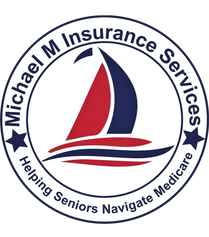Are All Doctors Covered By Medicare Advantage Plans?
Are All Medications Covered by Medicare Advantage Plans?
Are all Medicare Advantage Plans the Same?
Do Medicare Advantage plans require a Referral to see a Specialist?
Navigating health insurance can be complex, especially when it comes to understanding Medicare and its various plans. Recently, there has been an uptick in the number of individual disenrolling from Medicare Advantage plans, and this trend has raised some eyebrows. If you’re currently on Medicare or considering your options, it’s crucial to understand the reasons behind this shift.
What is Medicare Advantage?
Before we dig into why people are disenrolling, let’s clarify what Medicare Advantage is Medicare Advantage, also known as Medicare Part C, offers an alternative way to receive your Medicare benefits. These plans are offered by private insurance companies approved by Medicare and often provide additional benefits beyond Original Medicare (Part A and Part B),such as vision, dental, and wellness programs.

Common Reasons for Disenrolling from Medicare Advantage
1. Limited Provider Networks
One of the primary reasons people choose to leave Medicare Advantage plans is due to limited provider networks. Unlike Original Medicare, which allows you to see any doctor who accepts Medicare, Medicare Advantage plans often require you to use a network of doctors and hospitals. If your preferred healthcare providers are not in the network, this could limit your access to the care you need.
2. Unexpected Out-of-Pocket Costs
Though Medicare Advantage plans often have lower premiums than Original Medicare combined with a Medicare gap policy, out-of-pocket costs can be higher. Co-pays, co-insurance, and deductibles can add up quickly, catching some enrollees off guard. For many, these unexpected expenses become financially burdensome, leading them to disenroll.
3. Coverage Limitations
Medicare Advantage plans must cover all the services that Original Medicare covers. However, the way they cover these services can differ. Some plans may require prior authorization for certain procedures, or they might have more restrictive coverage policies for specific treatments. These limitations can be frustrating and inconvenient, prompting some to switch back to Original Medicare.
4. Changing Health Needs
Health needs can change over time. What worked for you a few years ago might not be ideal now. If you develop a chronic condition or require specialized care, you might find that your Medicare Advantage plan no longer meets your needs. This could be a significant factor in deciding to disenroll and seek alternative coverage.
5. Lack of Satisfaction with Plan Performance
Customer satisfaction plays a vital role in healthcare. Many people disenroll from Medicare Advantage plans because they are dissatisfied with the plan’s performance, whether it’s due to poor customer service, delays in receiving care, or issues with claims processing. High satisfaction rates are often associated with better health outcomes, making this a critical consideration.
6. The Annual Disenrollment Period
Lastly, it’s worth mentioning that the Medicare Advantage Disenrollment Period (January 1 – February 14) provides an opportunity for individuals to leave their Medicare Advantage plan and return to Original Medicare. This period allows beneficiaries to reassess their healthcare needs and make changes if they feel their current plan isn’t serving them well.
Is Disenrolling the Right Choice for You?
While there are valid reasons for disenrolling from a Medicare Advantage plan, it’s essential to carefully evaluate your options. Consider factors such as:
● Your healthcare needs: Do you require specialized care that your current plan doesn’t adequately cover?
● Costs: Are out-of-pocket expenses manageable within your budget?
● Provider access: Are your preferred healthcare providers within your plan’s network?
● Plan benefits: Does the plan offer additional benefits that you find valuable?
Frequently Asked Questions
Mike Miligi- Owner

